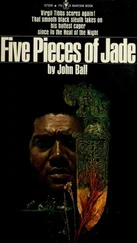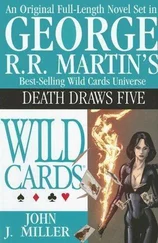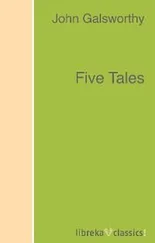John Bingham - Five Roundabouts to Heaven
Здесь есть возможность читать онлайн «John Bingham - Five Roundabouts to Heaven» весь текст электронной книги совершенно бесплатно (целиком полную версию без сокращений). В некоторых случаях можно слушать аудио, скачать через торрент в формате fb2 и присутствует краткое содержание. Жанр: Криминальный детектив, на английском языке. Описание произведения, (предисловие) а так же отзывы посетителей доступны на портале библиотеки ЛибКат.
- Название:Five Roundabouts to Heaven
- Автор:
- Жанр:
- Год:неизвестен
- ISBN:нет данных
- Рейтинг книги:4 / 5. Голосов: 1
-
Избранное:Добавить в избранное
- Отзывы:
-
Ваша оценка:
- 80
- 1
- 2
- 3
- 4
- 5
Five Roundabouts to Heaven: краткое содержание, описание и аннотация
Предлагаем к чтению аннотацию, описание, краткое содержание или предисловие (зависит от того, что написал сам автор книги «Five Roundabouts to Heaven»). Если вы не нашли необходимую информацию о книге — напишите в комментариях, мы постараемся отыскать её.
Five Roundabouts to Heaven — читать онлайн бесплатно полную книгу (весь текст) целиком
Ниже представлен текст книги, разбитый по страницам. Система сохранения места последней прочитанной страницы, позволяет с удобством читать онлайн бесплатно книгу «Five Roundabouts to Heaven», без необходимости каждый раз заново искать на чём Вы остановились. Поставьте закладку, и сможете в любой момент перейти на страницу, на которой закончили чтение.
Интервал:
Закладка:
“But poisoners,” Bartels said to me once, “they’re different. I just can’t get inside the mind of a man who poisons his wife, for example. Imagine the mentality of a person who sees his wife waking up in the morning, and hears her say, ‘I think I feel a little better today,’ who sees her looking brighter and more hopeful, and then slips out and puts more of the stuff in her drink.”
Doubtless it was only morbid fascination that made him take the book out of the case, and sit down with it, and glance through some of the pages.
He noted some of the more common poisons, and their reactions.
Hydrochloric Acid, or spirits of salt, is a corrosive. The symptoms resemble, but are not so severe as, those produced by sulphuric acid. The smallest quantity that has proved fatal is one teaspoonful. In two cases, both young girls, this was sufficient to cause death. Recovery has, however, taken place after an ounce and a half of the commercial acid has been taken, calcined magnesia having been administered ten minutes after it was swallowed. Death has occurred in two hours; the usual period is from eighteen to thirty hours…
Oxalic Acid. When swallowed in poisonous doses, oxalic acid produces local effects which resemble those produced by the mineral acids; but unlike them, it exercises a special influence on the nervous system and upon the action of the heart. The smallest recorded fatal dose is 60 grains, which taken in the solid form caused the death of a boy aged sixteen. Recovery has occurred after an ounce and a quarter. Death has occurred in ten minutes, but it may be delayed for several days…
Barium Chloride has been taken in mistake for Epsom salts. It has been taken for suicidal purposes in the form of rat poison, into the composition of some varieties of which it enters…
Acute Arsenical Poisoning …
Idly, Bartels turned over the pages. It seemed heavy and dull. He replaced it on the shelf. Next to it, he noticed a smaller, blue book, called Toxicology: A Handbook for GPs. He sat down with it.
Perhaps the fact that he had seen altrapeine among the bottles in the photographic darkroom in my flat caused him to pause and read about it.
Altrapeine, he read, was a synthetic poison with a cyanide basis…“it is a white powder, odourless and tasteless, and easily soluble in water. It exercises a specially fast and usually fatal influence on the action of the heart. The circumstances of death are to all intents and purposes similar to those associated with coronary thrombosis. There is little or no pain. Death occurs within a matter of seconds, and in the case of a woman of forty it took place after a dose of a quarter of a teaspoonful. This poison is exceptionally difficult to detect.”
Bartels laid down the book and gazed across the room. He remembered Dr Anderson once saying that coronary thrombosis was the most merciful death of all. That was when Beatrice had had severe pains in the left breast, and had half seriously, half jokingly, suggested that she might have angina pectoris.
Dr Anderson had told him, in private, that the pain had been caused by Beatrice getting into an emotional condition. He had never discovered the cause of the emotional condition, and had soon forgotten all about it.
Dr Anderson had said something else, chatting to him in the way doctors do. He had said that coronary thrombosis could cause angina pectoris.
If, therefore, Beatrice-What? He stopped the train of thought. But it crept back, stealthily, and he followed it to its conclusion. If Beatrice died very suddenly, in circumstances suggesting coronary thrombosis, Dr Anderson would remember the earlier suggestions of angina pectoris…It would confirm a diagnosis of coronary thrombosis.
He read the paragraphs again, and frowned.
A few moments later he heard his aunt’s footsteps descending the linoleum-covered stairs leading to the basement. After the deaths of aunt Rose and uncle James, she had redecorated the ground-floor rooms and let them, and now confined herself entirely to the basement.
Bartels rose quickly out of his chair, crossed the room, and replaced the book between the dictionaries. Perhaps it was this action, this quick, furtive movement, which first brought him face to face with the reality behind his thoughts.
But as he hastily picked up the evening paper again, and pretended to be reading it, his mind was still protesting against the evidence of his actions.
Now aunt Emily came into the drawing room and gave one of her glad cries of welcome. She welcomed him in exactly the same way as on all such occasions. She raised her hands in pretended surprise, managed to infuse a delighted look into her eyes and, implanting a wet kiss on both his cheeks, said:
“My! My! My! If it isn’t Phil? Well! Well! Well!”
Her good-natured oval face was wreathed in smiles. She gazed at him with every semblance of rapt attention. He knew that in two or three minutes she would be indulging in confidential remarks about the movements up or down of the stock exchange, for she prided herself on being a keen businesswoman, and the shortcomings of whoever at that particular moment happened to be occupying the top parts of the house.
But this time there was another topic. It was Chan, the Chinaman.
When Bartels asked her what the strange smell in the house was, she gave one of her mysterious little smiles. He knew those little smiles. They indicated that she was about to impart a confidential titbit of information. She said nothing for the moment, however.
For a while she sat by the fire, smiling mysteriously, and washing her hands with invisible soap. At length she said:
“Now if I tell you, you mustn’t laugh. Chan wouldn’t like that. I know what you are, you naughty boy.”
“I won’t laugh,” Bartels said, and thought: Why did I get up so quickly and put the book back? Why?
“Promise?”
“I promise.”
She leant forward and gazed into his face.
“A wonderful thing has happened,” she said. “I am being helped!”
“Helped? Who by?”
“By Chan.”
“Who’s he?”
“Chan is a mandarin. He is a very, very important mandarin who was a high official at the Emperor’s Court in Peking. He tells me that the Emperor did nothing, nothing at all, without his advice. He had to sit all day long at the Emperor’s right hand and advise him on all the legal and financial matters which the Emperor had to decide.”
Bartels looked at her in surprise. He said:
“But how old is he? They haven’t had an emperor in China for ages.”
Aunt Emily smiled tolerantly at him, as though he were naturally too inexperienced to understand these things. She said:
“Chan has been sent , dear. There is no age where he is.”
“You mean he is a spook, or something?”
“He is my guardian spirit, dear. Oh! What a wonderful man he is! He is just the man I wanted, a legal and financial expert; just think of that, dear! I have had the most wonderful help from him. If I told you some of the things he has said, they would surprise you. You would really never believe it all!”
Bartels nodded. He knew it was no good arguing on this subject. He stared at her through his old-fashioned spectacles, and said:
“How did he get in touch with you?”
“It happened in the most wonderful way,” she said in a low voice. “It was little short of a miracle! I was at the greengrocer’s ordering some vegetables when I saw quite an ordinary little woman standing by me looking at me in rather a strange way.”
Bartels said: “Had you seen her before?”
“Never. Now where was I? Oh, yes. Well, you know, she was staring at me in such a strange way that at first I thought she was rather rude. Then, just as I was leaving the shop, I felt a hand on my shoulder. I turned round and there she was again, and she said, ‘Excuse me, I’m afraid you must think me awfully rude, but I believe I can help you.’ I said, ‘Really, in what way?’ ”
Читать дальшеИнтервал:
Закладка:
Похожие книги на «Five Roundabouts to Heaven»
Представляем Вашему вниманию похожие книги на «Five Roundabouts to Heaven» списком для выбора. Мы отобрали схожую по названию и смыслу литературу в надежде предоставить читателям больше вариантов отыскать новые, интересные, ещё непрочитанные произведения.
Обсуждение, отзывы о книге «Five Roundabouts to Heaven» и просто собственные мнения читателей. Оставьте ваши комментарии, напишите, что Вы думаете о произведении, его смысле или главных героях. Укажите что конкретно понравилось, а что нет, и почему Вы так считаете.












